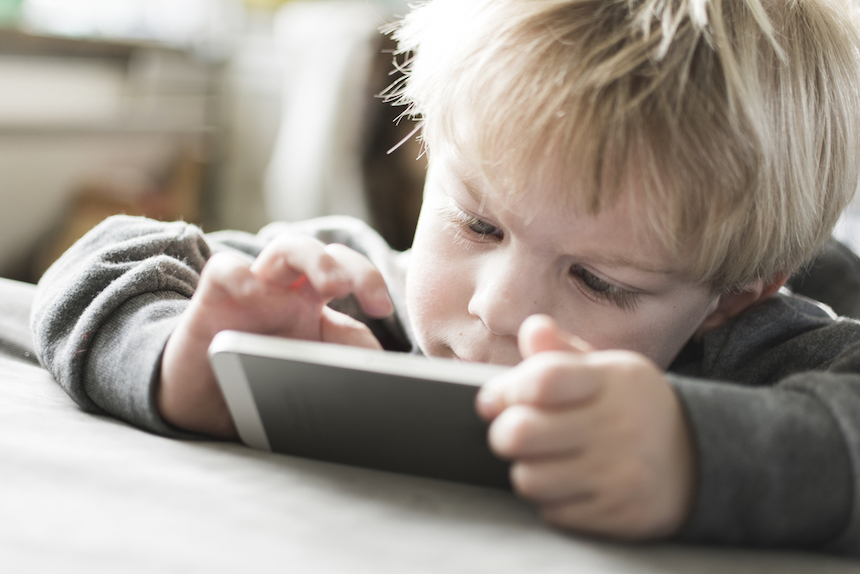
As parents, our number one priority is the health and happiness of our children. But in today’s world, finding correct information can be a nightmare. Just when we think we finally understand how one thing works, new research seems to appear that proves that everything we’ve been doing so far was wrong. Considering the research done in the past year, it appears that cell phones are making their way into the grey, neither-good-nor-bad category.
What the Latest Research Says
In a paper written by Amy Orben and Andrew K. Przybylski titled The association between adolescent well-being and digital technology use, the two Oxford University psychologists came to some interesting conclusions. Apparently, moderate use of technology can have small negative impacts on adolescent well-being, but it is nowhere near as damaging to their emotional health as bullying, smoking marijuana, or even wearing glasses!
Similarly, a paper published in January 2020 by Candice L. Odgers and Michaeline R. Jensen, titled Annual Research Review: Adolescent mental health in the digital age: facts, fears, and future directions further emphasize the minimal correlation between digital technology use and adolescent mental health, primarily focusing on anxiety and depression. The authors draw attention to the fact that emotional well-being is more related to the way in which teens use social media than the amount of time they spend on it.
Both articles provide valuable insight into adolescent mental health concerns and their relevance to smartphone use. They make relevant connections between online and offline behaviors, and while they do admit the need for further research, they’re a step in the right direction in terms of pointing scientists towards what their future focus should be.
But What Do These Findings Mean for Parents?
They definitely help to ease my personal anxiety every time my toddler reaches for a digital device, but I’m definitely not going to give my daughter free rein over how many hours she gets to spend in front of a screen. And the reason for this is simple.
Although the new data shows that, with healthy offline practices, the impact of screen time has no significant effect on emotional well-being, I still very well know that: 1) most of the research is based on social media use, and 2) it doesn’t take into account the other health risks associated with excess smartphone/tablet use.
What we currently know about the negative impacts of digital devices is a strong indicator that we should be carefully limiting the time our children spend on their phones.
- Smartphones are addictive: Catherine Price, the author of How to Break Up With Your Phone, points out that cell phones can be as addictive as slot machines. If you’ve ever found yourself mindlessly scrolling through your Instagram feed, or wanting to check the time and automatically opening the Facebook app, you know that this is true. Now, consider the fact that your brain is fully developed, yet is still susceptible to this type of addiction. Your child’s mind is still in its growth phase.
- Screens can cause sleep issues: All LED lights, including phones, tablets, computer screens, and TVs emit what is called blue light. Exposure to these light sources, especially during the night, has been connected to certain types of cancer, diabetes, heart disease, and obesity. But, there’s another significant side-effect that has to do with the circadian rhythm. Plainly said, while blue light can increase mood and alertness during the day, it can negatively affect sleep, causing melatonin suppression.
- Smartphones compromise concentration: Some research shows that having your cell phone in the same room where you are can significantly lower focus, and can even have a negative impact on students’ grades. And that’s no surprise. After all, carrying a distraction in your pocket 24/7 is a surefire way to stop yourself from paying attention to what matters.
Should Kids and Teens Be Completely Forbidden From Using Smartphones?
Well, here’s my take on the subject.
Smartphone exposure should be limited, but not necessarily completely cut out from our children’s lives. After all, in the modern age, technological literacy is an essential life skill that’s going to affect increasing segments of our daily routines. I do, however, feel strongly about implementing healthy practices regarding cell phone use.
For one, limiting exposure at night (and starting as early as in the afternoon) is the first step towards establishing a more hygienic sleep routine. Combined with encouraging correct breathing techniques and using hacks, such as blue light blocking glasses and software, can make a tremendous positive impact on making sure your child gets a good night’s sleep crucial for proper development.
Secondly, as parents, we need to encourage our children to lead rich, fulfilled lives offline. This includes creating plenty of opportunities to socialize, spending active time outside, and finding things that they’ll enjoy, that won’t have them glued to an LED screen. Signing them up for sports activities, an art class, or just reading a bedtime story can have an enormous positive impact on both health and habit forming.
Last but not least, it’s important to consider your own well-being too. Is it OK to reach for technology when you need a bit of help? Definitely! There’s absolutely nothing wrong with watching a cartoon on a lazy Saturday morning or allowing your child to play an educational game (even if it’s on your phone) while you take care of household chores.
So take a deep breath and relax. Your kids won’t become depressed or anxious just by having access to a phone. And as long as you implement some rules, you can be 100% certain that you’re doing an amazing job at keeping them healthy.






